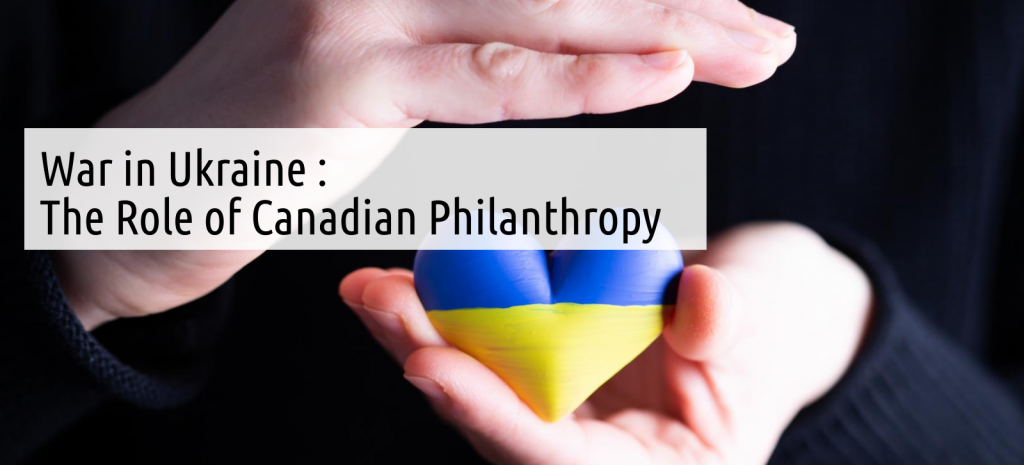
The role played by philanthropy in times of humanitarian crisis is as much a demonstration of human ingenuity as it is one of care and solidarity. As in response to other devastating crises such as the Syrian civil war and the war in Afghanistan, Canadian philanthropy has quickly mobilized its efforts and resources to support Ukrainians affected by Russia’s illegal invasion.
Canada is home to more than 1.4 million people of Ukrainian heritage – the world’s second largest Ukrainian diaspora after Russia. Since 1891, Canada has seen at least two significant waves of Ukrainian immigration: the first from 1891 to 1914 and the second from 1923 to 1939. This influx helped Canada to settle farmland in the Prairies and fuel industries with workers in Central Canada. “Canadian grown with Ukrainian roots” is an expression that describes many Canadians including Canada’s deputy prime minister, Chrystia Freeland.
The extent of the philanthropic sector’s response to the war in Ukraine has been extraordinary in terms of both rapidness and financial scope. In just the first month of the Russian invasion, for example, the “Canadian Red Cross Ukraine Humanitarian Crisis Appeal raised more than $128 million”. This included $30 million in matching funds from the Canadian Government. Ukrainian-Canadian communities have also sprung into action, particularly those with deep ties to Ukraine, such as the Canada-Ukraine Foundation. The Canada-Ukraine Foundation was formed by the Ukrainian Canadian Congress in order to coordinate, develop, organize, and deliver assistance projects generated by Canadians and directed to Ukraine. In the first few days of the invasion, “[t]he Canada-Ukraine Foundation said it had raised $4 million and delivered $500,000 of that to provide food packages, medicine and shelter.” It is foundations like this one who know what is needed and how to get it to the right people in the right place.
The outpouring of support Ukrainians are receiving comes as much from Canada’s formal charitable and philanthropic organizations as it does from informal and ad-hoc initiatives – frequently from complete strangers – who pull their resources together to help those in need. In this context, this is where the uniqueness, flexibility, and creativity of philanthropy really shines. We personally know of two Russian language students from Oxford in England who took time from planned studies to travel to Poland to provide translation services. They helped refugees who arrived at the Polish boarder to find shelter, get medical aid, and process documents. Dave Obee and friends in Victoria, BC are sending one thousand dollars a week to a friend in Ukraine. While intended to help them, their friend used it to help others, and the cycle is repeated, week after week, demonstrating the importance of trust in community actors. Some Canadians even took it upon themselves to travel to the Ukraine-Poland border and help out with anything they could.
Retailers in Victoria such as Walk in Comfort shoe stores, and the Old Farm Market stores, are standing with Ukraine by donating funds along with their customers, and this is being replicated by others across Canada. On a larger industry scale, Canada Industry for Ukraine is a new portal for Canadian businesses interested in providing support to Ukrainians displaced by the war. In just one day, $400,000 in donations were contributed by Loblaw, Canadian Tire, Metro and Couche-Tard.
The human and non-human cost of war is incalculable. Yet within this devastation and loss we have seen an outpouring of support through the movement of goods and funds, as well as the time, talents, and efforts of people. Foundations, large corporations, small businesses, communities, and individuals have all stepped up and provided what they can in the way that they are able. Pre-existing networks among leading Ukrainian-Canadian foundations and individual Canadians, some with Ukrainian heritage and others with none, have stepped up and into the breech.
What we must remember is that war, in any form or shape, has no winners and that the events that are still underway in Ukraine will echo for generations to come.
This article is part of the special flash edition of May 2022 – War in Ukraine: The Role of Canadian Philanthropy. You can find more information here


